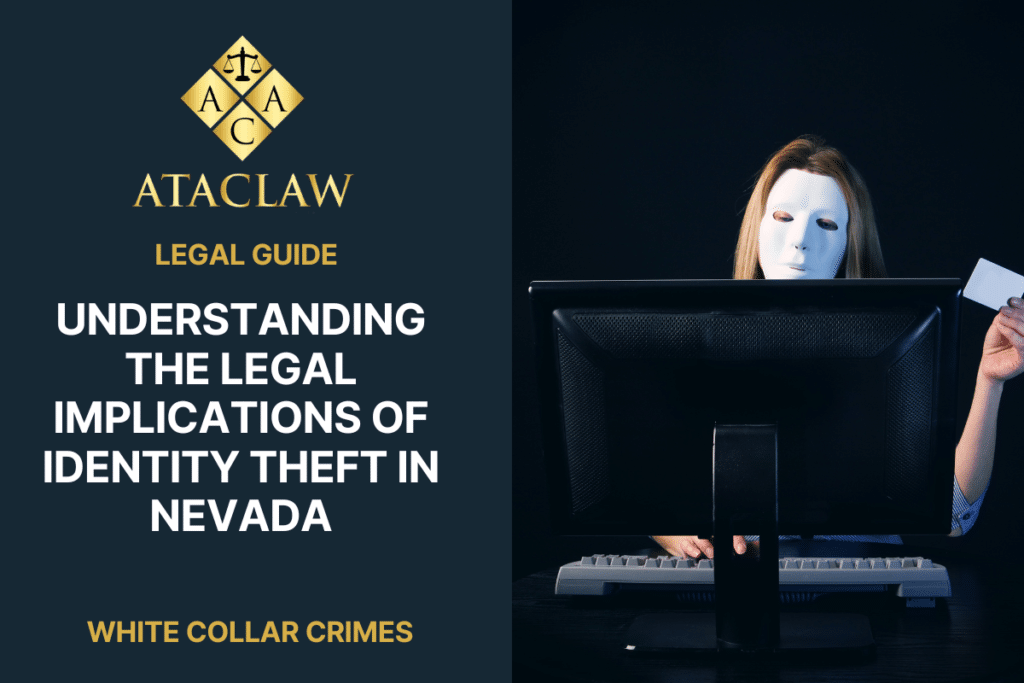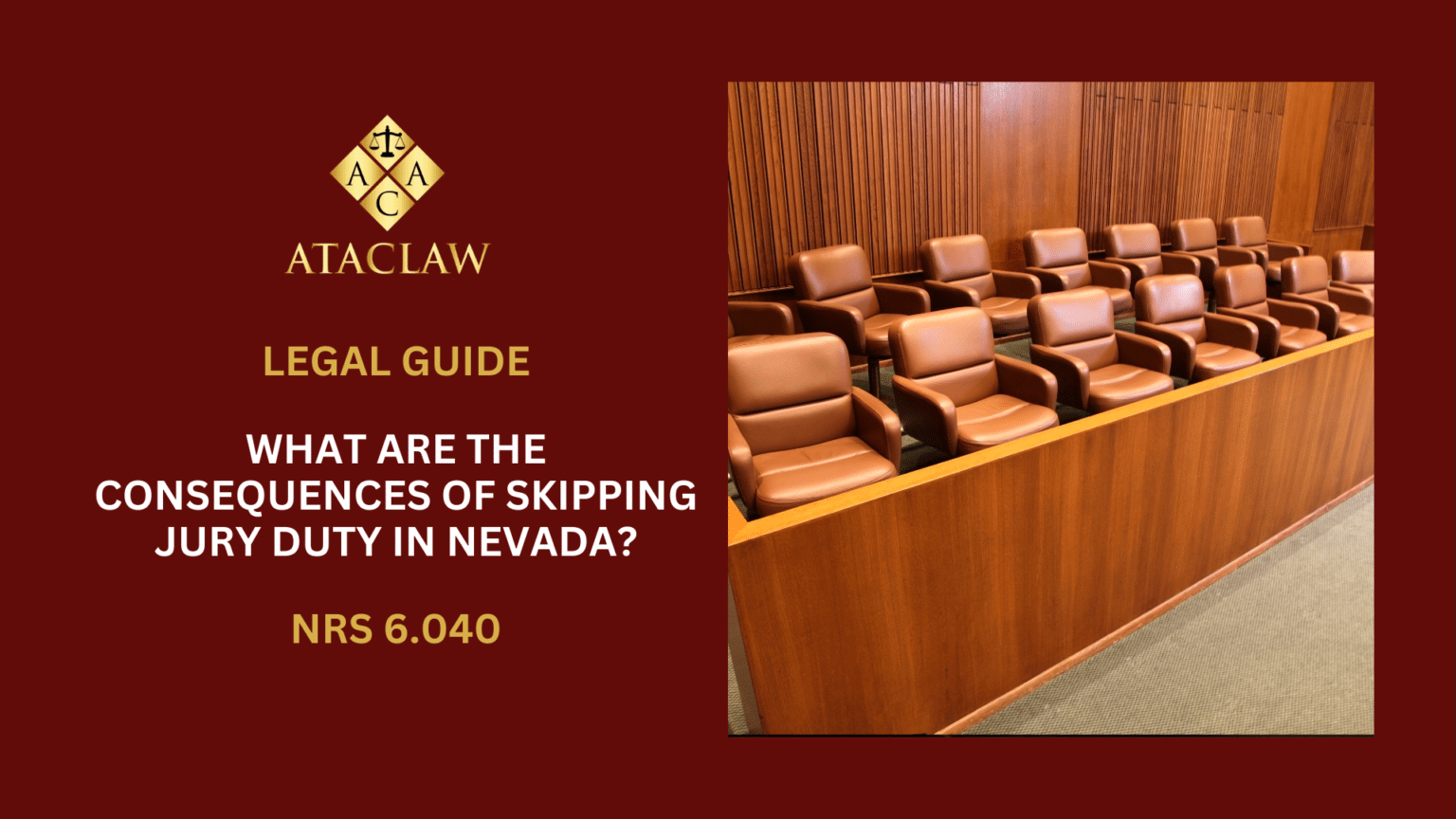In today’s digital age, safeguarding personal information has become paramount. Identity theft, a pernicious crime that involves the unauthorized use of another individual’s identifying details, has emerged as a significant concern. Nevada, a state renowned for its vibrant entertainment industry and bustling metropolitan areas, is no exception to this growing threat. As a criminal defense attorney, I understand the gravity of identity theft charges and the profound impact they can have on individuals’ lives. This comprehensive guide delves into the intricacies of Nevada’s identity theft laws, offering a deep understanding of the legal landscape and the strategies to navigate it effectively.
Defining Identity Theft: Unraveling the Nuances
To grasp the legal implications of identity theft, it is crucial to comprehend its definition within the context of Nevada’s statutes. Identity theft is a multifaceted crime that encompasses various forms of unauthorized access, use, or misappropriation of another person’s identifying information. This can include, but is not limited to, names, Social Security numbers, driver’s license details, financial account information, biometric data, and electronic signatures.
The Nevada Revised Statutes (NRS) explicitly outline the parameters of identity theft, making it a punishable offense to willfully utilize another individual’s identifying information for unlawful purposes. These purposes may include causing harm to the victim, obtaining unauthorized access to personal data, acquiring non-public records or transactions, or committing any other criminal act that results in financial gain or benefits.
Dissecting the Legal Provisions: A Comprehensive Overview
Nevada’s identity theft laws are codified under various sections of the Nevada Revised Statutes, each addressing specific aspects of this multifaceted crime. Understanding these legal provisions is crucial for both individuals facing charges and those seeking to protect themselves from becoming victims.
1. Fake Identification Documents (NRS 205.460 & NRS 205.465)
These statutes prohibit the possession, sale, or transfer of any form of personal identification that misrepresents an individual’s identity. Common examples include falsified driver’s licenses, counterfeit naturalization papers, fake military IDs, or fabricated membership cards. The law presumes intent to commit identity theft if an individual possesses identifying information belonging to five or more individuals, although this presumption can be challenged in court.
2. Misuse of Another Person’s Identifying Information (NRS 205.463)
This provision criminalizes the unauthorized use of another person’s identifying information for various nefarious purposes. These include causing harm to the victim, obtaining unauthorized access to personal information or records, committing fraud or deceit, or attempting to evade prosecution for unlawful acts. The definition of “identifying information” is broad, encompassing a wide range of personal data unique to an individual’s identity.
3. False Impersonation (NRS 205.450)
False impersonation occurs when an individual falsely represents themselves as another person in specific contexts, such as marriage, real estate transactions, confessions to criminal offenses or civil judgments, acting as bail or surety in legal proceedings, or any other action that compromises another’s monetary interests. It is important to note that this statute applies only to impersonating an actual person, not a fictional character.
Navigating the Consequences: Penalties and Sentencing
The penalties for identity theft in Nevada vary depending on the specific circumstances and severity of the offense. The most serious cases, classified as category B felonies, can result in substantial prison sentences ranging from one to twenty years, accompanied by hefty fines of up to $100,000 and mandatory restitution to the victim(s).
For offenses involving victims aged 60 or older or those considered “vulnerable persons” with mental or physical limitations, the minimum prison sentence increases to three years. Additionally, felony convictions for identity theft may result in the loss of certain rights, such as the right to possess firearms.
Less severe cases may be prosecuted as misdemeanors or lower-level felonies, carrying penalties that include probation, suspended sentences, fines, and potential jail time. The specific sentencing guidelines are outlined in the table below:
| Offense | Penalty |
|---|---|
| Possession of a fake ID to engage in age-restricted activities (NRS 205.460) | Misdemeanor |
| Selling or giving away a fake ID for age-restricted activities (NRS 205.460) | Gross misdemeanor |
| Possessing false identification to establish a fake identity (NRS 205.465) | Category E felony: Probation, suspended sentence, possible jail time (up to 1 year if the defendant has two or more prior felony convictions) |
| Selling or transferring a fake ID (NRS 205.465), possessing a fake ID for forgery, fraud, or other unlawful purposes (NRS 205.465), knowingly using another’s ID to avoid prosecution (NRS 205.463), or false impersonation (NRS 205.450) | Category C felony: 1-5 years in prison, fines (at the court’s discretion) |
| Knowingly obtaining another’s ID with intent to break the law (NRS 205.463), selling or transferring the personal identifying information of a person aged 60 or older, a vulnerable person, or of five or more people (NRS 205.465), or causing financial loss or injury of $3,000 or more through the sale or transfer of personal identification information (NRS 205.465) | Category B felony: 1-20 years in prison, fines up to $100,000, restitution to the victim(s) |
It is crucial to note that these penalties are subject to change, and consulting with an experienced criminal defense attorney is highly recommended to understand the most up-to-date legal landscape and potential consequences.
Mounting a Robust Defense: Strategies and Considerations
Facing identity theft charges can be daunting, but there are various defense strategies that experienced legal counsel can employ to protect an individual’s rights and interests. One of the most common defenses is demonstrating a lack of intent or knowledge to commit a crime. Accidental or unintentional misuse of another’s identifying information may not constitute a criminal offense under Nevada law.
Another critical defense strategy involves challenging the legality of the search and seizure procedures employed by law enforcement authorities. If evidence was obtained in violation of an individual’s Fourth Amendment rights, skilled legal representation can seek to suppress such evidence, potentially weakening the prosecution’s case.
Depending on the specific circumstances, other defense strategies may include negotiating favorable plea bargains, challenging the credibility of witnesses or evidence, or asserting affirmative defenses such as duress or entrapment.
Immigration Implications: Navigating the Complexities
For non-U.S. citizens facing identity theft charges in Nevada, the consequences can extend beyond criminal penalties and potentially impact their immigration status. While courts may differ on whether identity theft is considered a deportable offense, it is crucial for individuals in such situations to seek experienced legal counsel.
A knowledgeable criminal defense attorney can explore various avenues to mitigate the immigration consequences of identity theft charges. This may include seeking case dismissals, negotiating reduced charges to non-deportable offenses, or pursuing alternative legal remedies to protect the individual’s immigration status.
Sealing Records: Restoring Opportunities
Individuals convicted of identity theft offenses in Nevada may be eligible to have their criminal records sealed after a specified waiting period. This process, known as record sealing, can help mitigate the long-term consequences of a conviction and restore opportunities for employment, housing, and other areas of life.
The waiting period for record sealing varies based on the severity of the offense, ranging from one year for misdemeanors to five years for category B felonies. It is essential to note that there is no waiting period for cases that are dismissed, allowing individuals to pursue record sealing immediately.
Navigating the record sealing process can be complex, and enlisting the assistance of an experienced criminal defense attorney is highly recommended. They can guide individuals through the necessary steps, ensure compliance with all legal requirements, and increase the likelihood of a successful outcome.
Related Offenses: Understanding the Broader Context
Identity theft often intersects with other criminal offenses, and it is crucial to understand these related charges to mount an effective defense. Some of the most common offenses associated with identity theft include:
1. Credit Card Fraud (NRS 205.760)
Credit card fraud involves the unauthorized use or theft of credit card information for personal gain or to cause detriment to others. This can include using someone else’s credit card without permission or providing false information on a credit card application.
2. Counterfeiting Seals (NRS 205.175)
This offense encompasses the unauthorized creation or use of official seals, such as those used by government agencies or legal authorities. Counterfeiting seals is typically prosecuted as a category D felony in Nevada.
3. Forgery (NRS 205.090)
Forgery involves the creation or alteration of documents with the intent to defraud or deceive others. It is a category D felony in Nevada and often intersects with identity theft cases involving the use of falsified identification documents.
Understanding the intricacies of these related offenses is crucial for building a comprehensive defense strategy and anticipating potential charges or legal implications.
Victim Assistance: Empowering and Protecting
While this guide primarily focuses on navigating identity theft charges from a legal perspective, it is essential to acknowledge the significant impact this crime can have on victims. Individuals who have fallen prey to identity theft may experience emotional distress, financial losses, and long-lasting damage to their credit and personal reputation.
In Nevada, various resources are available to assist victims of identity theft in mitigating the consequences and regaining control over their personal information. These include filing reports with the Federal Trade Commission (FTC) and local law enforcement agencies, placing fraud alerts and credit freezes on credit reports, and seeking assistance from victim advocacy organizations.
By empowering victims with the necessary knowledge and resources, we can not only support their recovery but also contribute to the broader effort of combating identity theft and promoting greater awareness and prevention strategies.
Choosing the Right Representation: ATAC Law
Navigating the complexities of identity theft charges requires the guidance and expertise of a skilled and dedicated legal team. ATAC Law, with its extensive experience in defending clients against identity theft and other white-collar crimes, stands as a premier choice for individuals seeking unwavering representation in Nevada.
1. Proven Track Record and Expertise
ATAC Law boasts a proven track record of successfully defending clients against identity theft charges. Our team of attorneys possesses a deep understanding of Nevada’s identity theft laws, staying abreast of the latest legal developments and case precedents. This expertise enables us to craft effective defense strategies tailored to the unique circumstances of each case.
2. Personalized Approach and Unwavering Support
At ATAC Law, we recognize that every client’s situation is unique, and we take a personalized approach to each case. Our attorneys take the time to understand the nuances of your circumstances, answer your questions, and provide ongoing support throughout the legal process. We are committed to alleviating the stress and uncertainty that often accompany identity theft charges.
3. Vigorous Defense and Commitment to Justice
Our firm is dedicated to fighting tirelessly for our clients’ rights and interests. We scrutinize every piece of evidence, challenge the prosecution’s case, and present a compelling defense on your behalf. We are not afraid to question, negotiate, and, if necessary, take your case to trial to pursue the best possible outcome.
4. Accessibility and Open Communication
Effective communication is a cornerstone of our client-attorney relationship. We ensure that our attorneys are accessible to you, keeping you informed about the progress of your case and addressing your questions and concerns promptly. This open communication fosters trust and a collaborative approach to your defense.
Frequently Asked Questions
To further assist you in understanding the nuances of identity theft charges in Nevada, we have compiled a list of frequently asked questions and their respective answers:
1. What types of cases does ATAC Law handle?
While we specialize in providing robust defense against identity theft charges, our experienced attorneys also handle a wide range of criminal defense cases, including fraud, embezzlement, cybercrimes, and other white-collar crimes.
2. How long does a typical identity theft case last?
The duration of an identity theft case can vary significantly depending on its complexity, the amount of evidence involved, and whether the case proceeds to trial or is resolved through a plea agreement. It could range from several months to a few years.
3. Will my case go to trial?
Not all cases go to trial. Many are resolved through plea agreements or dismissal of charges. The decision to proceed to trial will depend on various factors, including the strength of the evidence against you and the legal strategy we develop.
4. What are the potential penalties for identity theft in Las Vegas?
The penalties for identity theft in Nevada can be severe, as it is considered a felony. They can include imprisonment, substantial fines, restitution to victims, and probation. The exact penalties will depend on specific factors such as the amount of money involved and whether the accused has prior convictions.
5. What factors can influence the outcome of my case?
Several factors can influence the outcome, including the amount and quality of the evidence against you, whether you have any previous convictions, the specific details and circumstances of your case, and the quality of your legal representation.
6. Can ATAC Law help if I am under investigation but not yet charged?
Absolutely. It is often beneficial to seek legal advice as soon as possible, even if you are only under investigation. We can provide guidance, communicate with law enforcement on your behalf, and work to prevent charges from being filed.
7. What if I cannot afford to pay for my defense?
Everyone deserves high-quality legal representation. That’s why we offer various payment options, and we are willing to discuss flexible payment plans that suit your financial situation. Additionally, our initial consultation is free of charge.
8. How can I set up a free consultation with ATAC Law?
You can set up a free consultation by contacting our office via phone or email. We will arrange a convenient time for you to meet with one of our experienced defense attorneys.
Glossary of Key Terms
To aid in your understanding of the legal terminology surrounding identity theft charges, we have compiled a glossary of key terms:
- Arraignment: The first court appearance in a criminal case, where the defendant is formally charged and asked to enter a plea.
- Charging: The formal accusation that a person has committed a crime, typically presented by law enforcement or a prosecutor.
- Criminal Identity Theft: A type of identity theft where someone gives another person’s identity to law enforcement officers when arrested or investigated.
- Defense Attorney: A lawyer who represents a defendant in criminal cases, working to protect their rights and present their defense.
- Financial Identity Theft: An act where someone uses another person’s identity to gain access to their financial resources, such as bank accounts or credit cards.
- Fraudulent Intent: The intention to deceive or cheat, often for personal gain or to cause damage to another party.
- Identity Theft: The fraudulent acquisition and use of another person’s personal identifying information, usually for financial gain.
- Investigation: The process in which law enforcement officers gather information about a crime, often involving interviewing witnesses, collecting evidence, and researching relevant information.
- Medical Identity Theft: A type of identity theft that involves using another person’s identity to receive medical care or prescription drugs.
- Plea Agreement: A deal between the defendant and the prosecution where the defendant agrees to plead guilty to a charge in return for some form of leniency, such as a reduced sentence or dismissal of other charges.
- Pre-trial Motions and Hearings: Legal proceedings that occur before the trial, often involving discussions about what evidence can be presented during the trial, the specifics of the charges, and other relevant legal issues.
- Trial: A formal examination of evidence by a judge and typically a jury to decide whether a defendant in a criminal case is guilty.
- Verdict: The decision made by a judge or jury in a trial, determining whether the defendant is guilty or not guilty.
- Child Identity Theft: A type of identity theft that involves using a child’s identity for various fraudulent purposes.
- Personal Identifying Information: Information that can identify a specific individual, such as name, Social Security number, bank account details, etc.
- Unauthorized Access: The use or access of personal identifying information without the permission of the individual to whom the information belongs.
Additional Resources
Navigating the complexities of identity theft charges can be a daunting task, but you don’t have to go through it alone. Our lead attorney, Augustus Claus has curated a comprehensive range of resources to provide you with in-depth knowledge and strategic insights across various aspects of criminal defense law. Here’s a summary of the valuable resources designed to support you in your time of need:
1. Theft Crime Defense Lawyer
This specialized resource offers insights and strategies for those seeking legal defense in cases involving theft crimes. It covers a wide range of theft-related offenses, including identity theft, and provides guidance on navigating the legal landscape.
Explore the Theft Crime Defense Lawyer Guide
2. White Collar Crime
Navigate the complex landscape of white-collar crime with Detailed information and legal perspectives on various white-collar crimes, such as fraud, embezzlement, and insider trading.
Learn More About White Collar Crime
3. Racketeering Charges
Understand the intricacies of racketeering charges and the legal frameworks surrounding them. This resource provides valuable insights into defending against allegations of organized criminal activities.
Discover Key Information on Racketeering Charges
4. Fraud Charges
Gain in-depth knowledge about the legal ramifications and defense strategies related to fraud charges. This resource covers various types of fraud, including identity theft-related fraud offenses.
Read In-Depth About Fraud Charges
5. Embezzlement Charges
Explore the specific legal considerations and defense approaches for embezzlement charges. This resource offers guidance on navigating the complexities of these financial crimes.
Find Out More About Embezzlement Charges
6. Larceny Charges
Understand the nuances and legal strategies pertaining to larceny charges. This resource provides valuable insights into defending against accusations of theft and unlawful taking of property.
Learn the Specifics of Larceny Charges
7. Credit Card Fraud Charges
Access detailed information on the legal landscape and defense tactics for credit card fraud charges. This resource covers the intricacies of these offenses, which often intersect with identity theft cases.
Explore Your Options for Credit Card Fraud Charges
8. Burglary Charges
Get to know the legal implications and defense strategies related to burglary charges. This resource offers guidance on navigating the complexities of these property crimes.
Read More About Burglary Charges
9. Robbery Charges
Familiarize yourself with the specific challenges and defense approaches for robbery charges. This resource provides valuable insights into defending against these violent crimes.
Understand Your Rights Regarding Robbery Charges
10. Grand Theft Charges
Grasp the intricacies of grand theft charges and the potential legal pathways. This resource offers in-depth information on defending against allegations of large-scale theft.
Learn In-Depth About Grand Theft Charges
Molly Rosenblum, Esq. ensures that these resources are not only informative but also actionable, providing you with the clarity and support needed to navigate your legal journey. Each resource is tailored to address specific legal concerns, empowering you to make informed decisions during critical times.
Offsite Resources
In addition to the comprehensive resources provided by our firm, we encourage you to explore the following offsite resources for further learning and support:
1. Federal Trade Commission: Identity Theft
This resource from the Federal Trade Commission provides comprehensive information on how to handle identity theft, including steps to recover from the crime and protect your personal information.
Visit the Federal Trade Commission’s Identity Theft Resource
2. Legal Information Institute: Theft
Maintained by Cornell University’s Legal Information Institute, this page offers a comprehensive overview of theft law, including various types of theft offenses and their legal implications.
Explore the Legal Information Institute’s Theft Resource
3. Nevada Revised Statutes: Crimes Against Property
This section of Nevada’s laws covers theft, burglary, and other crimes against property, providing valuable insights into the legal framework surrounding these offenses.
Access Nevada Revised Statutes: Crimes Against Property
4. American Bar Association: Criminal Justice Section
The American Bar Association’s Criminal Justice Section provides resources on a range of criminal justice topics, including legal updates, practice guides, and educational materials.
Visit the ABA’s Criminal Justice Section
5. National Legal Aid & Defender Association
This organization provides legal assistance to those who cannot afford it, and their website includes a variety of resources on criminal defense and other legal matters.
Explore the National Legal Aid & Defender Association’s Resources
6. National Association of Criminal Defense Lawyers
As a professional organization for criminal defense lawyers, the NACDL offers resources on various legal topics, including theft and other crimes, as well as updates on relevant case law and legislation.
Visit the National Association of Criminal Defense Lawyers’ Website
7. Bureau of Justice Statistics
This federal agency provides statistics on crime, criminal offenders, victims of crime, and the operation of justice systems at all levels of government, offering valuable data and insights for understanding the broader context of identity theft and related crimes.
Access the Bureau of Justice Statistics’ Resources
These offsite resources, combined with the comprehensive guidance provided by our firm, will equip you with a well-rounded understanding of identity theft charges and the legal landscape surrounding them.




